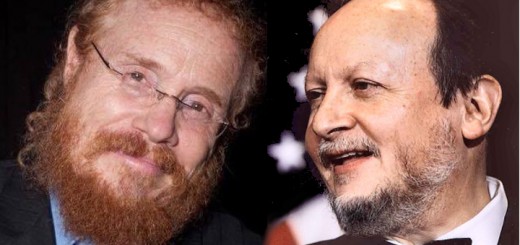A Cautionary Tale

The headline says it all: “Court orders Orthodox woman to be cremated after three-month battle.”
Ethel Baar, who died on September 11, began following Orthodox Judaism late in life, and her great-nephew James Pollak said that she had wanted to be laid to rest in accordance with Orthodox tradition.
But in 1999 she also stated in her will that she wanted her body to be cremated, which is against halachah.
There isn’t much a secular court could do; even they follow the principle of Devarim Shebelev Aynam Devarim, “Words of the heart are as nothing.”
As found on “Yiddish Nayes.”




You’re misrepresenting what we know about this case based on incorrect information. The New York Post and The New York Daily News have details which are quite different. It is — to say the least! — not at all clear she adopted any measure of Orthodoxy, nor is it — to say the least! — near clear that she wanted to be buried.
The Post:
“‘Ethel was a very feisty woman, outspoken and full of life,’ said cousin William Wolf. ‘She was not at all religious in any way, shape or form. She never expressed any affinity with the Orthodox religion. In fact, she left an Orthodox home as a girl.'”
“Cousin William Wolf testified briefly, insisting Baar wanted to be cremated and had no desire to be connected to Orthodox traditions.A relieved Wolf said outside court he has no doubts that Baar’s true wishes are now being honored. ‘She was a woman with a strong will, no one could change her mind,’ he said. ‘She was a tough lady.’ Judge Solomon refused to hear from Pollak’s only witness, Ellen Gordon, the daughter of Baar’s longtime pal Bashka Schasberger. Gordon claims she keep in regular contact with Baar, and the centenarian she told her 1 1/2 years ago that she changed her mind and wanted to be buried. ‘I didn’t tell her to put in writing,’ a downcast Gordon said. ‘I’m very regretful.'”
The Daily News:
“‘[Pollock] was badgering and harassing her that she should adopt orthodoxy at burial, but that was not her wish. She was very clear,” said Greenberg, who is also Baar’s nephew. ‘She rejected his bullying several times.’…Loved ones say Baar was an outspoken, independent thinker who left her North Dakota home as a young woman partly to escape the Jewish Orthodox community she was born into…’He’s very Orthodox. That’s fine, but we live in the United States and Judaism is a very big tent,’ Greenberg said of Pollock. ‘What he’s succeeded in doing is taking away the right of a lot of people to grieve for the loss of a very dear loved one.’ A grandniece wrote a letter to the funeral home, urging it to bury Baar…’Apparently, only one out of many of Aunt Ethel’s relatives has some objection to the cremation process, and this should not override her wishes,’ Joan Klivans said.”
It’s wrong to say that someone is “misrepresenting what we know” when the available information is reported accurately. Despite an Internet search, no other information was available to me at the time, and the caution is appropriate regardless of what turns out to be true in this case. When one is too much the cynic, it reduces the caliber and accuracy of criticisms accordingly.
“It is — to say the least! — not at all clear she adopted any measure of Orthodoxy, nor is it — to say the least! — near clear that she wanted to be buried.”
I think you are missing the larger point R. Menken is making. Without written instructions as to what you want, then it is left as guess work as to what your intent really was. Each relative or acquaintance can have a different POV and might see things differently. We have no way of knowing whether the Orthodox or non-Orthodox relatives have a more accurate view of what this woman wanted near the time of her death. (That she left an Orthodox community decades ago does not impress me. People have a change of heart as time goes by, particularly as death nears. Not to mention that to someone growing up in an Orthodox community, the notion of cremation would often seem anathema.)
The bottom line is that if you want your wishes carried out post-mortem, you need to make them clear in a written instrument, preferably one drafted with the assistance of a lawyer. Otherwise, you are left to guess work and disagreements among relatives and friends.